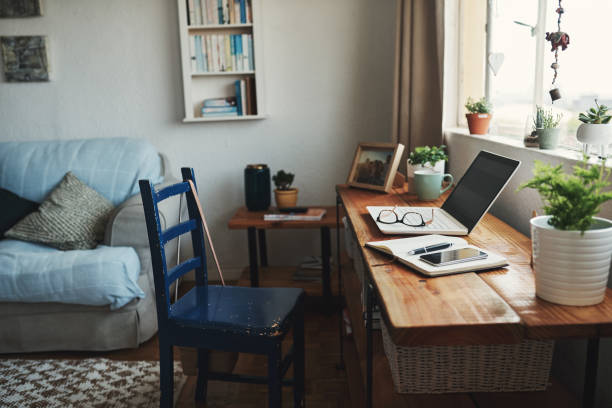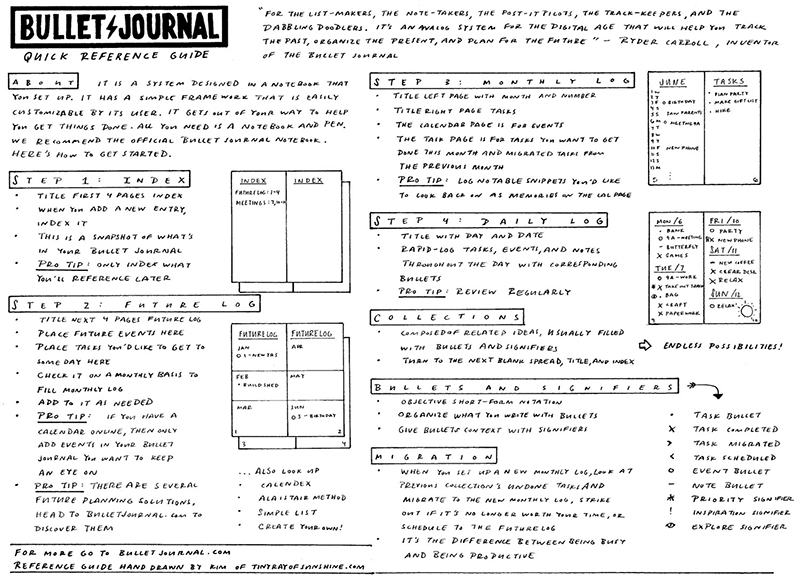The Coronavirus pandemic have changed our lives in more ways than one. Lockdown brought a new concept to many companies as they shifted business to home, and some are even planning on sticking to it after Lockdown.
Not only are companies saving on costs such as renting offices, electricity and other everyday expenses but have also found that employees (in most cases) are more productive. Employees of course also benefit from the change – no more sitting in traffic for hours and wasting fuel.
However, it could also be challenging as your home might not be set up as office space and could make concentration harder.
Working from home can get even more difficult when you are juggling a family, work and part-time studying like Webafrica Brand Ambassador, Justin Wilson. “Working from home can be extremely difficult as the lines between work/home life can get blurred often, especially when you dealing with family and trying to get your degree. But I believe in time management, discipline and remaining focused on the end goal. Once you use those three as your foundation it can make it easier,” Wilson says.
Currently studying BCOMM (Marketing) through UNISA on a part-time basis, Wilson has to balance studying and working each day along with having a family of four to take care of, “It is extremely difficult (to juggle all these things) but you need to be disciplined and plan your day. I wake up around 5 am to get some study time. From 6:30 it is getting kids done for school until around 8 am. Then work till 4 pm. After that, until 7:30/8 pm it’s family time. After that, until around 11 pm – 12 am it is study, study, study.”
How does he do it?
“I guess it is just staying focused on your end goal and try and get some rest when you can. Not getting enough sleep really catches up on you closer to the end of the week.”

Here are a few tips we’ve picked up to improve your working-from-home experience and your productivity:
Keep working normal office hours
First and foremost, it’s important to keep to your normal office hours if possible. If you usually work 8 am – 5 pm in the office environment, try to stick to that at home as well. The best way to not let working from home be too disruptive to your system is to keep the normal structure going. It is also important to remember that it’s easy to work overtime when you’re at home so make an effort to knock off within the hours you’ve laid out for yourself. If you usually head home at 5 pm, then set an alarm and try your best to close the laptop once the clock hits 5 pm.
No pyjamas!
It’s very tempting to just stay in your PJs the whole morning (if not the whole day) if you know you don’t have to face anyone. Don’t fall into this bad habit. When you wake up in the morning, get dressed as per usual before work and keep your normal morning routine going. Now you can just replace driving to the office, with setting up a to-do list or doing some yoga/exercise instead in that time. Getting dressed doesn’t mean you have to wear your heels or your fancy office suit, you can still dress comfortably but make yourself presentable and ready for the day. This could also prove helpful in case you have an ad-hoc meeting and they suddenly ask you to switch on your video.
Your brain will also take it as a “sign” that it’s time to wake up and focus as it’s used to your pre-Lockdown routines. Well, unless you wore your pyjamas to the office before Lockdown – then we don’t have advice for you.
Create a schedule
Now that you have the extra time you would’ve been travelling to work, you can use the time to sort out your schedule and to-do list for the day. Plan out what you need to do, how much time you should ideally spend on it and rate them in order of importance. For the tasks that are most important, you can plan for the time of the day that you are usually your most productive. If you’re productive in the morning, finish all your concentration-heavy tasks by lunch and the more mindless tasks in the afternoon when things start slowing down or vice versa. Planning your day, will make sure you are productive and focused on the tasks at hand and help you to finish your working day on time.
Take breaks & get out during lunch
When we’re at the office, we tend to take breathers by going to grab a coffee and most of the time that will result in a few minutes spent chatting with colleagues while filling your mug. At home, we might forget to take breaks and it could mean you’re wearing yourself out. We don’t mean taking lengthy breaks that will get you fired… just stretch your legs, do a 5-minute breathing exercise or go get yourself coffee in between tasks, especially those that require a lot of concentration. For lunch, always try to take your full hour – HR will agree that it is important to take this break. If possible, don’t eat your lunch or spend the hour at your desk. Go outside in the garden or relax on your couch, change environments. Need some human interaction? Schedule to take lunch or tea breaks at the same time as a colleague and have a WhatsApp call to quickly check in with each other.
Eat, sleep & exercise
Eating healthily can become a bit difficult when you’re at home. Some of us find that we snack on more junk food at home and others do not eat at all during the day. It’s important to try to get a healthy diet going during your working day to keep your mind fresh and energised. Food groups like protein and things that are rich in magnesium, zinc and iron are very important for concentration. Drink enough water to keep you hydrated and awake. Eat your three meals a day and make them healthy ones. Pre-made meals aren’t just for the office, plan your meals the night before and prepare for the next day.
Rest during the evenings and make sure you get your eight hours of sleep each night. Being well-rested will not only improve your mood the next day but help keep you energised and help with concentration.
Now that you don’t have to walk across a whole office to go to the loo or walk to someone’s desk, you might find that you are a lot less active at home. Try to get exercise every day by heading to the gym or even just going for a walk during lunchtime, before or after work. Another helpful tool is if you have a fitness app/device such as Fitbit and set it up to remind you to take a certain amount of steps every hour. If you don’t have an app or fitness device, set your phone alarm, and work out a route through your house that you do a certain number of times within a few minutes. Most phones come with a fitness app such, as Samsung Health, so you can hold your phone to count your steps while walking and try to do 250 steps each hour (or more depending on your activity levels). It might not be perfectly accurate, but it will get you up and moving.
Stay in touch
Google Hangouts, Google Duo, Skype, Zoom, Microsoft Teams… there are so many options to keep in touch with your colleagues these days. At Webafrica we find Microsoft Teams extremely useful and it works well for our company. If you are a business owner, consider setting up an account where you can chat and keep in touch with your employees. Video calls are also very easy and user-friendly on Zoom and Microsoft Teams. Whichever works best for you, use it to its full potential! Make sure you check in with colleagues regularly not only for work reasons but also to just get in a bit of social interaction to keep you sane…
Choose a space – not your bed.
Sadly, working on the bed is not the best way to work from home. It’s great to do every now and again when you don’t have work that requires too much brainpower but don’t make it a habit. For optimum productivity, you should set up a designated working space. Keep your workspace and your stress-free relaxing space separate. It will not only probably give you backaches but could also be bad for you mentally to lie on your bed and using your laptop. Work starts and ends at your desk.
Tip: If you don’t have the means to get a desk, office chair or other necessary equipment, talk to your employer and see if there’s something they can assist with. For those who need to transform a part of their houses into an office or purchase expensive equipment, there is now a provision from SARS where you can claim tax returns on certain home office expenses. Check with a tax practitioner or do some Google digging to find out if you qualify.
Use project management sites like Trello or Monday.com
There are plenty of project management tools (basically daily task organising websites in normal people terms) these days and most come with mobile apps you can download on your phone to access when you’re away from your PC or laptop. You can either keep a management board private and plan out your own day/month/year etc. or you can create a shared board where you can all contribute and manage your team tasks together.
Ground rules for those who live with you
If you have a family, partner or housemate living with you, you might have to start laying down some ground rules. It can be very distracting and disruptive to have someone come to talk to you while you’re busy concentrating. Make your desk a no-go zone if possible (unless it’s an emergency of course) and close the door to the room you’re working in if you have the option. See what will work for you but make sure that they understand you need to stay focused and can chat during breaks. Kids aren’t always as easy so it’s important to set those boundaries and get help from family members.
Background music
Most people find that background music help to uplift their moods and can drown out the other background noise, like lawnmowers, kids shouting, cars beeping… all those suburban noises that come out of nowhere and give you the fright of your life if you were sitting in silence and concentrating. If you get too distracted by songs with lyrics and start to give voice to your inner Beyoncé instead of focusing on work, try classical music or get an instrumental work-focus playlist from YouTube, Spotify or whichever programme you use. Elevator music might make you fall asleep so play around and see what works for you.
These tips work for some of our Webafricans as well. Here’s how some of our staff survive working from home:
“Background music is essential for me, multi-vitamins every day, take a walk outside during the work-day to let the eyes rest and take in some fresh air. I would say, try to keep work and home-life separated and try not to blur the lines between office hours and family time…” Mark Frater (Infrastructure Manager)
“To be honest, my (Microsoft) Teams is so busy and that keeps me focused all the time, replying and assisting where I can as well as eight customers at a time.” Faiza Peters (Junior Technical Support Agent)
“Stick to a morning routine, shower and get dress, don’t work in PJs. Snack less, work more. Stand up every now and again pace around. Call someone midday – a client, a colleague, a manager – (it) helps with staying engaged. Sit at a desk, your serving tray is not a desk.” Iman Barends (Junior Technical Support Agent)
“For me, it’s writing down my tasks for the day, I tend to start with something small that I can gain that small victory, that helps me stay motivated and focused on what I need to do. Background music is also a winner in my opinion.” Jonathan Theron (SysAdmin / DevOps Engineer)
Here’s a super cool tool Jonathan shared with us and says, “I use this for personal things too. Ended up buying my first house after it was on the top of my to-do list for 3 years.”

We hope these tips help you get through the new age of working from home. A stable internet connection is vital in our new modern way of doing business. Check that you have an appropriate upload speed to ensure file uploads are faster and video calls are less laggy.
Need a better connection? Click here to view our options.



